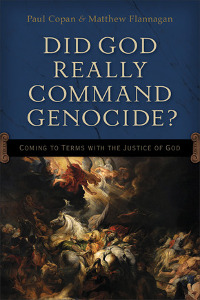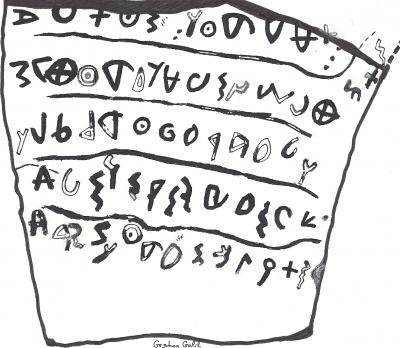









If you’re familiar with biblical criticism (i.e. the study of manuscript traditions and copies, textual variations, questions of dating and authorship of various books), you’ll be aware of two distinct tendencies. Whether it’s helpful (or accurate) or not, these two tendencies are often deemed “liberal” and “conservative.” Conservative biblical criticism generally regards the books of the Bible to have an earlier date of writing, closer to the time of the events that they depict. Conservative criticism is more likely to attribute the actual authorship of books to the author named in them, and is resistant to suggestions that any book containing a prophetic prediction was written after the fact predicted so that the original prediction can be doctored to fit the fulfilment. As liberal biblical criticism is sometimes associated with scholars who have an interest in denying the possibility of miracles (including prophetic prediction), any appearance of a successful prediction (for example when Jesus predicted the destruction of Jerusalem within the lifetime of his audience) is explained by a very late authorship of the book in question where the prediction was inserted after the alleged fulfillment had already occurred.
The Old Testament history of Israel is frequently a target of liberal criticism. Large-scale migration from Egypt, the events of the conquest, even the very existence of key historical figures is called into question, and it is often said that the books themselves were written numerous centuries after the time that conservative scholarship would have us think. In other words, the Old Testament history of Israel is regarded by some liberal biblical critics as a re-written history that was not composed until many centuries after the supposed fact. Positing a significant gap in time – the larger the better – between the events and the recording of them lends plausibility to the suspicion that there is little (if any) relationship between the actual history and the composed record of it.
Recently more extreme liberal biblical criticism took a hit, with the discovery and more recently the deciphering of the most ancient Hebrew inscription on earth.
Prof. Gershon Galil of the University of Haifa who deciphered the inscription: “It indicates that the Kingdom of Israel already existed in the 10th century BCE and that at least some of the biblical texts were written hundreds of years before the dates presented in current research.”
A breakthrough in the research of the Hebrew scriptures has shed new light on the period in which the Bible was written. Prof. Gershon Galil of the Department of Biblical Studies at the University of Haifa has deciphered an inscription dating from the 10th century BCE (the period of King David’s reign), and has shown that this is a Hebrew inscription. The discovery makes this the earliest known Hebrew writing. The significance of this breakthrough relates to the fact that at least some of the biblical scriptures were composed hundreds of years before the dates presented today in research and that the Kingdom of Israel already existed at that time.
…
He adds that once this deciphering is received, the inscription will become the earliest Hebrew inscription to be found, testifying to Hebrew writing abilities as early as the 10th century BCE. This stands opposed to the dating of the composition of the Bible in current research, which would not have recognized the possibility that the Bible or parts of it could have been written during this ancient period.
Prof. Galil also notes that the inscription was discovered in a provincial town in Judea. He explains that if there were scribes in the periphery, it can be assumed that those inhabiting the central region and Jerusalem were even more proficient writers. “It can now be maintained that it was highly reasonable that during the 10th century BCE, during the reign of King David, there were scribes in Israel who were able to write literary texts and complex historiographies such as the books of Judges and Samuel.” He adds that the complexity of the text discovered in Khirbet Qeiyafa, along with the impressive fortifications revealed at the site, refute the claims denying the existence of the Kingdom of Israel at that time.
Read more about this here, and read the University’s press release here.
Hat tip to Christian News New Zealand for bringing the link to my attention and to Johnny King for bringing the CNNZ article to my attention (he did so on Facebook).
Glenn Peoples




